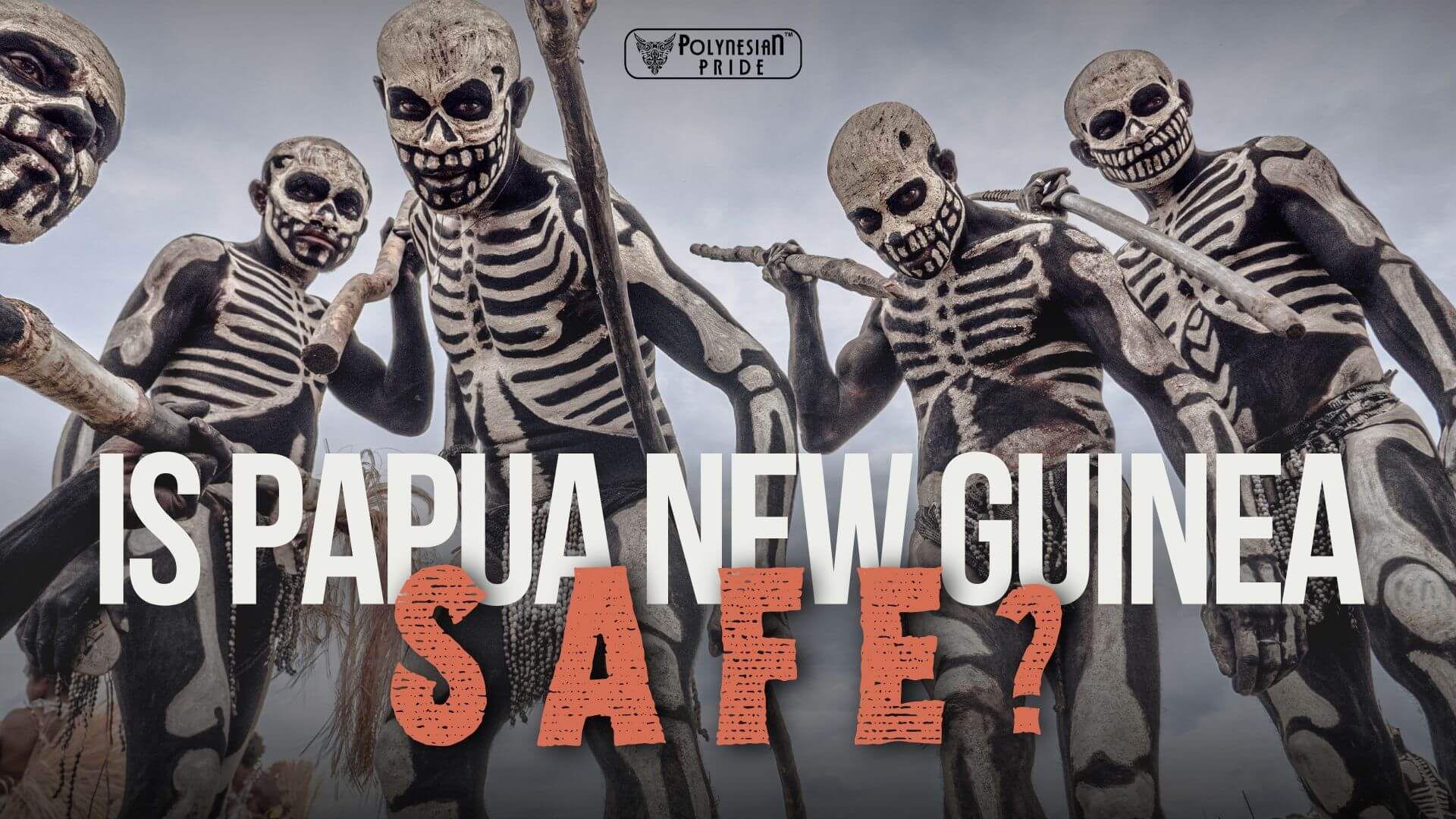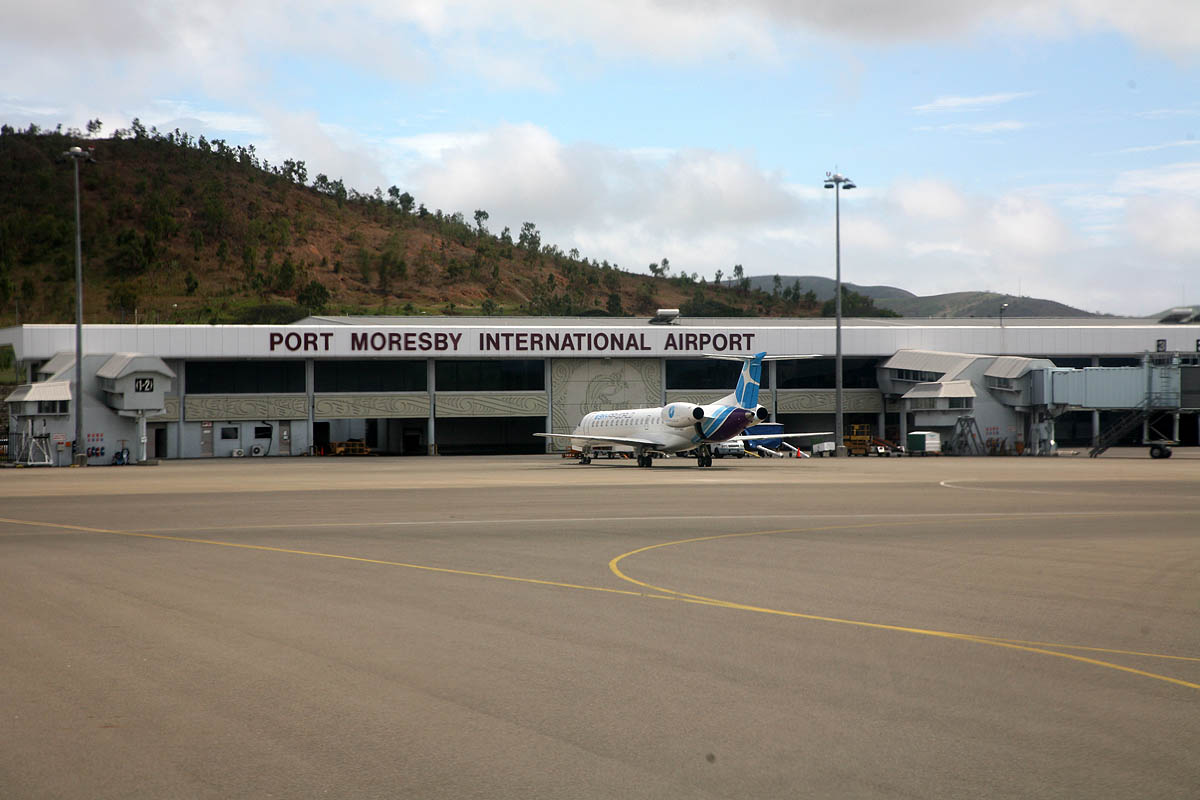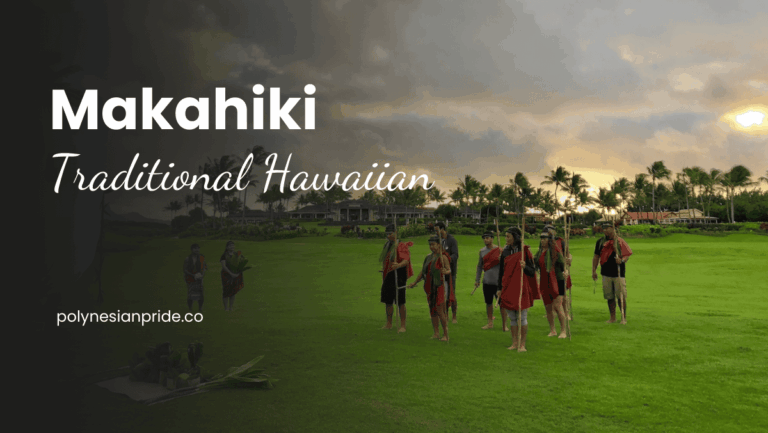Is Papua New Guinea Safe To Visit? Safety Tips for Tourists

INTRODUCTION
Papua New Guinea is a destination rich in cultural heritage, stunning landscapes, and unique biodiversity. But like any travel destination, understanding the safety landscape is crucial for a pleasant trip. This guide provides a comprehensive look at the safety aspects of traveling to Papua New Guinea, including practical tips to ensure a safe and enjoyable visit.
I. Where is Papua New Guinea?
Geography
Papua New Guinea, situated in the southwestern Pacific Ocean, occupies the eastern half of New Guinea. It shares its borders with Indonesia to the west (West Papua) and includes several islands like Bougainville and New Britain.
The country features diverse terrain, from tropical rainforests and mountains in the highlands to coastal plains and coral reefs along its extensive coastline. Active volcanoes and seismic activity are notable due to their location on the Pacific Ring of Fire. It offers geological interest and stunning natural landscapes for visitors to explore.
A Land Of a Thousand Cultures
People in Papua New Guinea speak over 800 languages and belong to more than 7,000 distinct cultural groups, creating a rich tapestry of indigenous traditions and a melting pot of diverse cultures ready for exploration.
Travelers often wonder, “Is Papua New Guinea safe?” Imagine trekking through rugged highlands, diving into pristine coral reefs teeming with marine life, and witnessing vibrant cultural festivals celebrating age-old traditions. The warmth of the people and the unique culture of Papua New Guinea add a deeper dimension to any visit.

II. How to get to Papua New Guinea?
Traveling to Papua New Guinea can seem daunting due to the high flight costs, especially for those from the USA or Europe. However, with a few strategic tips and tricks, you can find more affordable options for your journey. Here’s how to get started.
The Only Way to Papua New Guinea: Flights to Port Moresby
Jacksons International Airport in Port Moresby (POM) is the primary entry point into Papua New Guinea. As the main international airport, flights to Port Moresby can be expensive. Still, with careful planning, you can find more cost-effective alternatives.
Alternative Routes Through Neighboring Countries
An intelligent way to reduce travel costs is by breaking your journey into segments. Here are some strategies:
- Fly to the Philippines: Manila and Cebu often have budget-friendly flights. From the Philippines, you can find affordable connections to Port Moresby.
- Stopover in Australia: Cities like Sydney, Brisbane, and Cairns offer regular flights to Papua New Guinea. Check for deals and promotions that might make this route cheaper.
- Consider Japan: Tokyo and Osaka are major hubs with flights to Port Moresby. Sometimes, booking a flight to Japan and then a separate flight to Papua New Guinea can result in significant savings.
Additional Tips
- Book in Advance: Flights to remote destinations like Papua New Guinea are cheaper when booked several months ahead.
- Set Fare Alerts: Use fare alert features on Skyscanner or other travel websites to get notified of price drops.
- Check for Airline Deals: Airlines occasionally offer promotions or discounts, especially during off-peak seasons. Keep an eye on airline websites and travel forums.

III. Must-have Things for Entering Papua New Guinea
Traveling to Papua New Guinea requires specific preparations, depending on your nationality. Here are the fundamental requirements you need to fulfill before your journey:
Valid Passport & Visa Requirements
Ensure your passport is valid for at least six months from entering Papua New Guinea, as this is a standard requirement for international travel.
You must obtain a visa before arriving in Papua New Guinea. The visa should be approved and purchased in advance. Make sure to print a copy of your visa approval to present upon arrival.
COVID-19 Vaccination Proof & Malaria Prevention
Travelers to Papua New Guinea must present proof of COVID-19 vaccination and a physical or digital vaccination certificate. Stay informed about the latest vaccination requirements, as they are subject to change.
Malaria is prevalent in Papua New Guinea. While taking malaria pills is optional, assessing your health needs and seeking advice from a healthcare professional is advisable. If you choose not to take malaria pills, ensure you have a strong bug spray to protect against mosquito bites.
Travel Insurance
Although the Papua New Guinea government does not mandate travel insurance, most tour companies highly recommend it. Travel insurance covers medical emergencies, trip cancellations, and other unforeseen events. World Nomads is a popular choice for comprehensive travel insurance.

IV. Is Papua New Guinea Safe For Tourists?
Crime Rates and Types of Crime
Crime in Papua New Guinea, particularly in urban areas, can be a concern. Common issues include petty theft, car-jackings, and occasional violent crimes. Tourists should exercise vigilance, avoid displaying valuables, and stay in well-lit and populated areas.
Natural Hazards and Environmental Risks
Papua New Guinea is prone to natural hazards such as earthquakes, tsunamis, and volcanic activity. The dense jungles and rugged terrain can also pose risks for adventurous travelers. In considering “Is Papua New Guinea safe?”, it’s essential to be aware of weather conditions and follow safety advice from local authorities to mitigate these environmental risks.
V. Is Papua New Guinea Safe in Political and Social?
Current Political Climate
Papua New Guinea’s political environment is generally stable but can experience periods of unrest, particularly during elections. Staying informed about the political situation and avoiding political gatherings can help ensure your safety.
Social Issues
Social issues such as tribal conflicts and land disputes can affect certain areas. These conflicts are usually localized, but when wondering “Is Papua New Guinea safe?”, it’s important to research and avoid regions with known tensions. Understanding these social dynamics can help you explore the country more safely.
VI. Is Papua New Guinea Safe in Urban Areas?
In Port Moresby
As the capital city, Port Moresby has higher crime rates than rural areas, with incidents of theft, assault, and carjacking being more common. Stick to secure accommodations, such as reputable hotels with good security measures. Avoid traveling at night, as the risk of crime increases after dark, and use trusted transportation options like hotel shuttles or vetted taxi services. When asking “Is Papua New Guinea safe?”, it’s crucial to consider these urban safety measures and stay vigilant in public spaces, especially in markets and less crowded areas.
In Lae
Lae, an industrial hub, faces similar safety challenges, with reports of armed robberies and gang-related violence. Travelers should remain cautious, particularly in less populated or poorly lit areas, and avoid walking alone after sunset. It’s advisable to stay in well-secured accommodations and travel in groups whenever possible.
Other Major Cities
Other cities like Madang and Mount Hagen also have safety considerations, with occasional incidents of petty crime and unrest. Following local advice, such as from hotel staff or local authorities, and maintaining a low profile can reduce risks. It’s important to be discreet with valuables and avoid displaying expensive items. Addressing “Is Papua New Guinea safe?” involves being mindful of these urban precautions, adhering to safety guidelines, and staying informed about any potential risks or areas to avoid.

VII. Is Papua New Guinea Safe in Rural Areas?
Highlands Region
The Highlands are renowned for their stunning landscapes and rich cultural heritage, but they also experience occasional tribal conflicts and land disputes. When considering “Is Papua New Guinea safe?” in this region, it is advisable to travel with a local guide who is familiar with the area and its current conditions. Staying informed about local news and any potential conflicts is crucial. Additionally, being aware of local customs and traditions and showing respect towards them can help ensure a smoother and safer visit.
Coastal and Island Areas
Coastal and island regions in Papua New Guinea are generally safer than inland areas, but still require caution. Popular for their beautiful beaches and marine activities, it’s important to respect local communities and their traditions. To answer “Is Papua New Guinea safe?” in these areas, be aware of risks like strong currents, wildlife encounters, and cyclones. Being prepared and following local safety advice ensures a pleasant and secure stay.

VIII. Is Papua New Guinea Safe in Accommodation?
Stay at Airways Hotel
If convenience and stunning views are your top priorities, Airways Hotel is the perfect choice. Located adjacent to the airport, this hotel offers a breathtaking view of the runway and features a beautiful pool.
Visit Loloata Island Resort
If you’re looking to immerse yourself in an island experience, consider booking a day pass or an overnight stay at Loloata Island Resort. Situated on a private island, this resort offers a unique getaway with luxurious amenities.
Dine at Crowne Plaza’s Port
For a more upscale experience, head to the Port at Crowne Plaza. This venue boasts a fantastic restaurant, bar, and lounge, providing a safe and enjoyable environment. One of the highlights of staying here is the live music, which adds a vibrant atmosphere to your evening.
IX. Is It Safe To Speak With Locals?
Respecting Local Customs and Traditions
Photography is a sensitive subject in Papua New Guinea. Always ask for permission before taking someone’s photo. Understanding the cultural significance of photography can help avoid misunderstandings and show respect for local traditions.
Safe Interaction Tips
When engaging with locals, a friendly and respectful approach is essential. Greet people with a smile and show genuine interest in their culture. Avoid sensitive topics such as politics and tribal conflicts, and steer clear of controversial subjects.
Dress Code and Modesty
Dress modestly, especially in rural areas. Men and women should avoid wearing revealing clothing (especially women to avoid dangerous). Understanding local dress norms not only shows respect but also helps you blend in more comfortably.
Learning Basic Phrases in Tok Pisin
Learning a few basic phrases in Tok Pisin, one of the official languages of Papua New Guinea, can greatly enhance your interactions. Simple greetings and expressions of gratitude can go a long way in building rapport. Here some common sentence:
- Hello: Halo
- Thank you: Tenkyu
- I need help: Mi nidim help
- Do you speak English?: Yu save tok Inglis?
- Can I take a picture?: Inap mi kisim piksa?
- I would like to find a place to eat: Mi laikim painim ples bilong kaikai

X. Top Safety Place in Papua New Guinea
Port Moresby
Port Moresby, the primary city of Papua New Guinea, is a gateway to its cultural and natural wonders. While it’s a bustling urban center, it’s advisable to balance time here with exploration beyond its borders to discover the region’s stunning landscapes.
Despite prior safety concerns, personal experience reveals that with prudent choices such as avoiding risky areas and opting for secure accommodations that locals recommend, visitors can enjoy safe and enriching experiences. Evenings can be pleasantly spent exploring the city’s dining scene, contributing positively to one’s overall impression of Port Moresby as a vibrant destination blending cultural richness with modern amenities.

Goroka
In the Eastern Highlands, Goroka is renowned for its vibrant cultural festivals and stunning highland vistas. The annual Goroka Show, featuring traditional dances, music, and colorful costumes, offers an immersive cultural experience. Surrounded by picturesque landscapes, including rolling hills and lush valleys, Goroka is a haven for nature enthusiasts.
The town provides a safe environment with hospitable locals who warmly welcome visitors. Attractions like local markets and the J.K. McCarthy Museum add to the charm. Enjoying festivals, hiking, or exploring local culture in Goroka offers a memorable and safe experience in Papua New Guinea’s Eastern Highlands.

East New Britain
Rabaul, located in East New Britain Province, is a safe and captivating destination in Papua New Guinea. Renowned for its historical significance and stunning natural landscapes, Rabaul offers visitors the chance to explore volcanic remnants like Mt. Tavurvur and World War II Japanese tunnels. With its picturesque harbor and scenic viewpoints, Rabaul provides a peaceful atmosphere for adventure and relaxation.
Kimbe, in West New Britain Province, is famed for its exceptional diving spots with diverse marine life and vibrant coral reefs. This tranquil town, surrounded by stunning coastal landscapes and lush greenery, offers a peaceful retreat. With a welcoming atmosphere and friendly locals, Kimbe promises a safe and enriching experience, perfect for exploring underwater marvels, hiking, or simply enjoying the scenic beauty of Papua New Guinea’s coastline.

Milne Bay
Milne Bay is a peaceful and safe destination in Papua New Guinea, surrounded by lush rainforests and picturesque coastlines. Known for its warm hospitality, Milne Bay offers cultural richness through events like the Alotau Cultural Festival, showcasing traditional dances and music. Once you come here, you will forget the question “Is Papua New Guinea safe?” right away.
Nature enthusiasts will find pristine beaches, clear waters perfect for snorkeling and diving, and diverse marine life, including vibrant coral reefs. Milne Bay’s Alotau’s tranquil atmosphere ensures a safe and enjoyable experience, whether exploring rainforest trails, visiting historical sites such as the Turnbull War Memorial, or simply relaxing by the sea at sunset.

XI. Practical Safety Tips
Travel Essentials for Papua New Guinea
- The currency: Papua New Guinean Kina (1 Kina = 0.26 USD)
- ATMs: are accessible at airports, credit cards are widely accepted (consider international travel cards),
- Free SIM cards are available at the airport (ensure your phone is unlocked),
- Wifi: is typically offered in hotels
- Religion: Most of the religion is Christianity
Always book a travel agency
Using a trusted travel agency in Papua New Guinea ensures a safe and organized trip. These agencies provide secure accommodations, reliable transportation, and knowledgeable guides who understand local customs and safety protocols. By relying on their expertise, you can focus on enjoying the country’s unique cultural and natural attractions with peace of mind.
Personal Safety Habits
When exploring Papua New Guinea, prioritizing personal safety is essential. Stay vigilant and avoid risky areas, especially at night. Traveling in groups or with a trusted guide enhances security. Simple practices like avoiding solo walks after dark significantly boost safety.
Handling Money and Valuables
To secure your finances and valuables, use hotel safes or secure lockers. Carry minimal cash and prefer credit cards or traveler’s checks for transactions to minimize theft risk. This approach ensures financial security and access to funds in case of emergencies.
Staying Connected
Maintain reliable communication with a local SIM card or global roaming plan. Staying in touch with family and friends enhances safety by facilitating quick access to assistance if necessary. Sharing your itinerary with trusted contacts and regular check-ins further ensures a secure travel experience in Papua New Guinea.
Here are significant numbers to keep handy:
- Police Emergency: Dial 111
- Ambulance Service: Dial 111
- Fire Service: Dial 110
- Australian High Commission (Port Moresby): +675 7090 0100
- U.S. Embassy (Port Moresby): +675 321 1455

CONCLUSION
In conclusion, Papua New Guineans value respect, honesty, and openness, responding warmly to politeness and friendliness. Initial appearances can be misleading, but a smile fosters a welcoming atmosphere. Sharing and gifting are vital to building strong relationships that enhance safety and enrich experiences.
A common theme emerges across Papua New Guinea’s diverse cultures: a profound love for others despite challenges from urbanization and economic disparities. While inequality exists, personal safety is upheld by following local advice and trusting instincts. By embodying humility, respect, generosity, and kindness, visitors can form genuine connections, leaving stereotypes behind and embracing the true essence of Papua New Guinea. For those wondering, “Is Papua New Guinea safe?” exercising these values contributes significantly to a positive and secure experience.
FAQs
Is Papua New Guinea safe for solo female travelers?
Although solo female travel in Papua New Guinea is possible, it carries risks. Urban centers like Port Moresby, Lae, and Mt Hagen have high crime rates, and tribal disputes can arise suddenly in other areas. Due to the developing tourism infrastructure and logistical challenges, it’s best to travel with a reputable guide or travel agency for a safer experience.
Where is the safest place in Papua New Guinea?
It’s Goroka, the capital of the Eastern Highlands. Alotau in Milne Bay and Rabaul & Kimbe in New Britain are also good choices for safety trips in Papua New Guinea.
Which part of Papua New Guinea is offering leisure tourism?
East New Britain in Papua New Guinea is recognized as the country’s tourism hub, offering plentiful leisure tourism opportunities. The region is renowned for its adventure tourism initiatives, which capitalize on its rugged landscapes and breathtaking natural beauty to entice visitors.
Is Papua New Guinea expensive to visit?
On average, travelers spend approximately $6,193 per person for a one-month trip to Papua New Guinea, covering expenses such as food, sightseeing, local transportation, accommodation, and nightlife. For two people, the total cost for the trip amounts to $12,387.

I am Leilani Miller – I research focusing on Vanuatu – volcanic landscapes, blue holes, coral reefs & rainforests. I have over five years of experience researching and sharing insights on tourism and environmental activism. Explore and experience without limits through my latest article.
Contact information:
📬Email: [email protected]
☎️Tel: +1 (808) 555-1528






